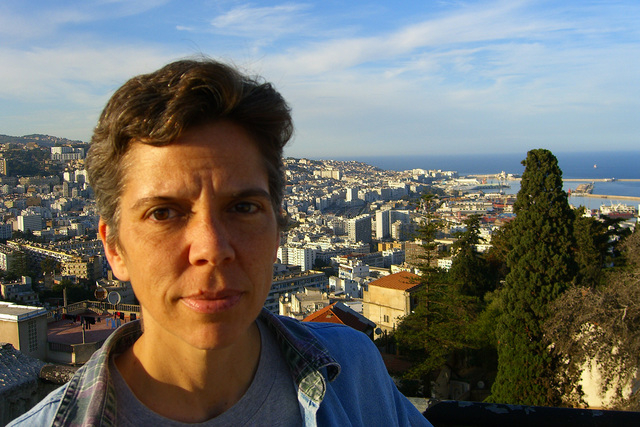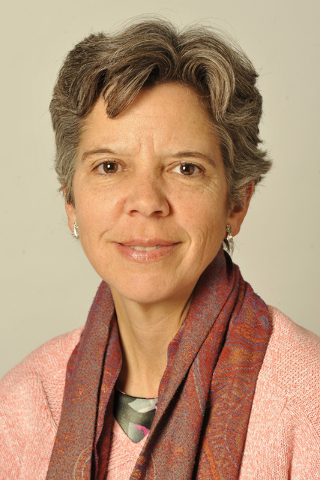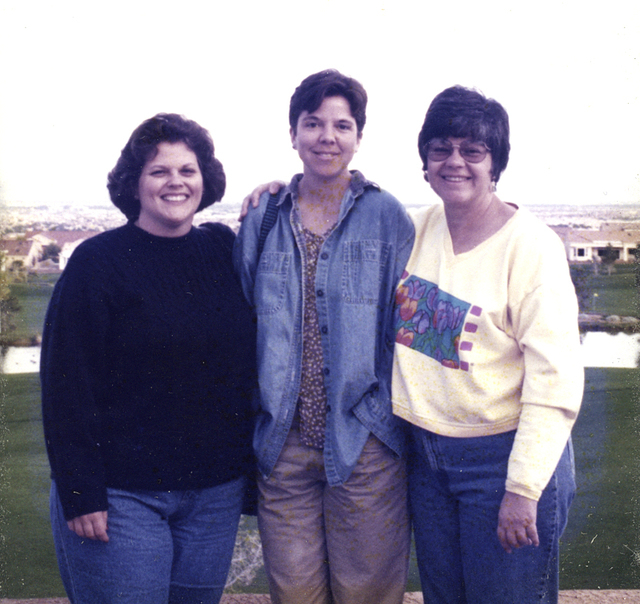For Laura Myers life was a grand adventure until the pain became unbearable



Laura Myers never worked for a salary. She worked for the love of the job and the joy of doing her job well, whether she was castrating sheep or doing something even more challenging, like covering U.S. Senate Majority Leader Harry Reid’s 2010 race.
She never approached a story with a predetermined bias; she only wanted to do the most evenhanded job possible.
Our friendship dated to 1987, when we both worked for the Reno Gazette-Journal. She was that newspaper’s capital bureau based in Carson City; I was the RGJ’s Las Vegas bureau, brought up north to cover the 1987 Legislature.
She was 12 years younger and less experienced than I was, but I learned from her. I learned how to ask a person the same question in different ways to get a complete answer rather than a preordained soundbite or the evasive nonanswer so popular in politics today.
When writing, she had the ability to focus to the exclusion of everything around her, as she demonstrated in the newsroom. A co-worker once collapsed behind her while she was writing, and it took her time to notice.
She showed how she dealt with pain. My desk was next to hers at the Las Vegas Review-Journal so we pretty much heard each other’s telephone interviews. When she expressed surprise as Democratic gubernatorial candidate Robert Goodman said he was in it to win, I couldn’t help but laugh.
But after cancer spread from her colon, her moans of pain were devastating to hear. Yet when a work call came in, she was Ms. Professional. Speaking clearly, asking the right questions and handling herself like a consummate pro, because she was. People she interviewed had no idea of the excruciating pain she overcame to do her job and didn’t know that sometimes she was asking questions while doubled over.
She was only 53 when she died.
Laura didn’t brag about her achievements. Her resume went on for pages, yet never listed her awards.
Once in a while she’d talk about dangers and possible death in Africa but seldom spun war stories about her career or dramatic experiences.
When she was in Africa in the Peace Corps, Laura wrote letters to friends that were worthy of publishing as travel pieces. An enthusiastic hiker, she described climbing Mount Kilimanjaro in detail, even touching on the amount of vomiting.
One of her closest friends was Laura Wingard, the R-J’s former city editor, who also covered the 1987 Legislature as a political reporter.
Myers was the Good Laura, the humanitarian who surrendered enviable journalism jobs to help others. Wingard was distinguished in conversations as the Bad Laura, who would never do such a thing. Nor would I.
In a letter in November 1992, she invited us to visit her in Togo but added that, “I know, you’re afraid that if you come to Africa you might get dirty. And what would you do with your cats.”
She continued, “As for dirty, let me tell you that you haven’t really lived until you’ve taken a cold bucket bath.”
One letter from Togo in 1994 was written as Peace Corps volunteers were told to leave their villages for safety and prepare to evacuate the country because of a coup attempt. Although she sought safety in a larger city, she missed her village.
“The last thing I want to do is leave the work and people of Assoukoko,” she wrote.
After a few days of uncertainty, she awoke with diarrhea.
Laura wrote, “I am convinced health is mostly a state of mind, and I had not been sick in Africa yet, except for a couple of head colds. But I was now heartsick.”
She was conflicted between staying and going home.
She stayed. That’s what Laura did. She finished the job. No matter the challenges faced, the dangers encountered or the hardships overcome.
And in the end, she taught her co-workers what it was like to work in constant pain, pain so severe she sometimes had trouble standing and was bent over, clutching her abdomen in agony.
But work was her escape.
So when others might have faltered or given up, Laura Myers forged forward, fighting cancer like it was an African warlord.
And despite the grim diagnosis in March 2013, when her colon cancer was already stage 4, she didn’t give up.
She chose life and fought cancer with all her might.
Shortly before her death, she told me, “I can handle the pain, I want to live.”
Laura had the heart of a lion, and I wish she had lived. Just not in pain.
Jane Ann Morrison’s column usually appears Thursdays. Email her at jmorrison@reviewjournal.com or leave a message at 702-383-0275. Follow @janeannmorrison on Twitter.
RELATED
Nevada journalist and humanitarian Laura Myers has died at age 53












